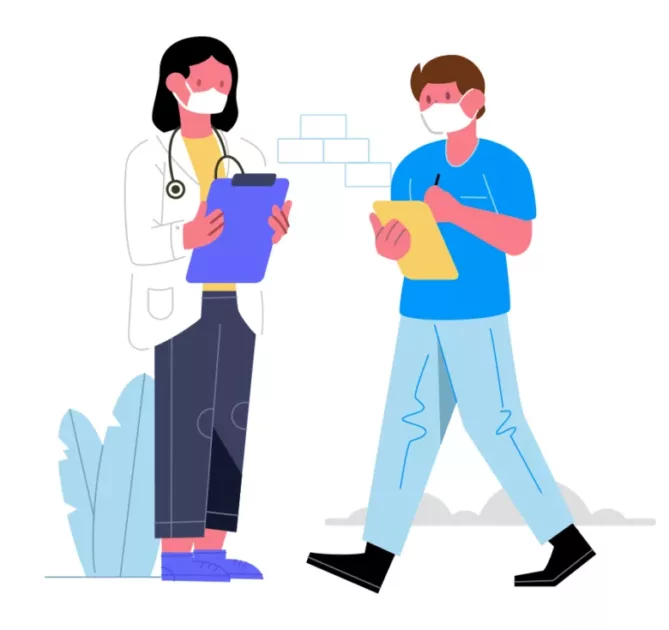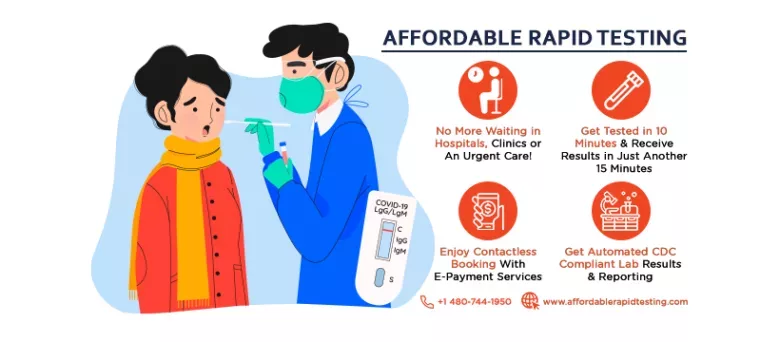As the risk factors of COVID are still there, many people are wondering what kind of COVID-19 test they should get. There are two main types of tests available: PCR test and rapid test. So, what’s the difference between them?
- RT-PCR tests are the most accurate type of test available. They involve taking a swab of your nose or throat and then sending it off to a laboratory for analysis. The results usually take a few days to come back.
- Rapid COVID-19 tests, on the other hand, give you results in around 15-30 minutes. They work by detecting antibodies in your blood that show you’ve had the virus. However, they’re not as accurate as PCR tests and can sometimes give false positive results.
If you live in Arizona, U.S, and are planning on traveling to China or Spain, or need to know if you have the virus for work or school, getting a PCR test is the best option. However, if you just want peace of mind and don’t mind waiting a few days for your results, a rapid test is probably sufficient.
Using RT-PCR Test
- The process
The RT-PCR test uses laboratory equipment to “amplify” a sample of ribonucleic acid (RNA). Even minute amounts of the COVID-19 virus are made visible in the test sample by amplifying RNA. The RT-PCR test will find the virus even if you only have a tiny amount of it in your body.
Your DNA is not altered in any way by the RT-PCR test, and your test provider can only use your DNA to determine whether you are positive for COVID-19.
- Benefits
Heather Seyko, a Laboratory Services manager for OSF HealthCare, stated that “PCR tests are more reliable and accurate due to testing the specific genetic material of the virus, eliminating the interference from other viruses.”
- Drawbacks
While RT-PCR testing is the ideal method of detecting COVID-19, it is not always the most convenient. PCR tests must be performed by a medical professional and do not produce immediate results, so you may have to wait a few days to find out whether you are Covid-positive or negative.
Rapid Antigen COVID-19 Test
- How does it work?
The rapid test, known as an antigen test, looks for proteins found on the virus’s surface.
The antigen test mimics the actions of antibodies. Antibodies are the “good guys” that bind to the antigen protein and fight the virus. When you provide a nasal swab sample, it is placed in a liquid and then on a test strip.
If there are any COVID-19 antigen viruses in your system, the molecules in the liquid will bind to those antigens, causing a line to appear on the test strip. This indicates that you have COVID-19. If no antigens are detected in your system, the liquid does not respond and it means that you are negative.
- Benefits
You can get the results in approximately 15 minutes. It’s simple enough to book a slot for a rapid COVID-19 test near you. The availability of quick tests helps in the slow spread of contagious viruses with faster results.
- Drawbacks
“The antigen test, unlike the PCR test, can only determine if you have an active virus in your body.” “The rapid test cannot detect small amounts of the virus or asymptomatic cases as precisely as the PCR test,” Heather explained.
Selecting which Covid-19 test to take?
A RT-PCR test would be used where there is a low likelihood of the virus being present but you want to be certain that you do not have it. If there is a high likelihood that you have the virus (i.e. experiencing symptoms) and need quick screening, a rapid antigen test can come in handy.
Conclusion
If you have influenza-like symptoms, you should get tested. You can try either the Rapid Antigen Test or the RT-PCR test, depending on your needs. Both can be completed safely and efficiently at Affordable Rapid Testing. We provide safe, contactless, and affordable tests and our lab locations are just minutes from the airport.


